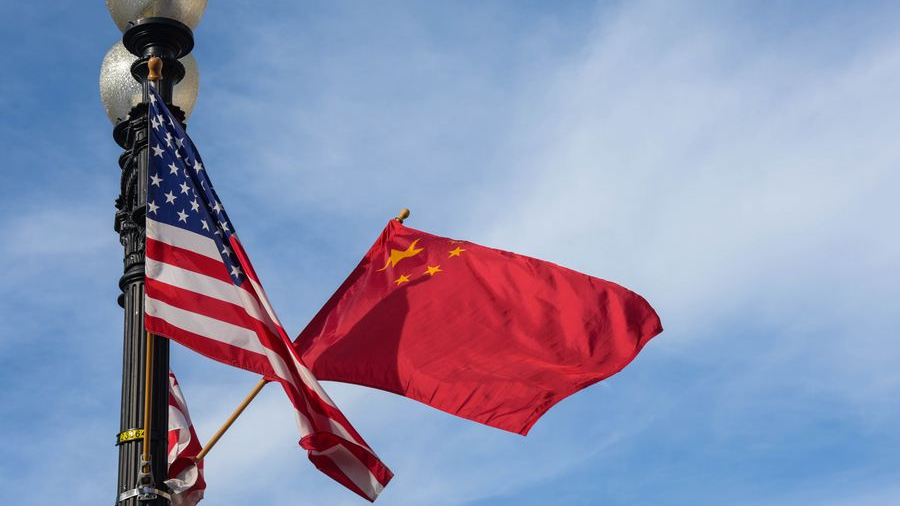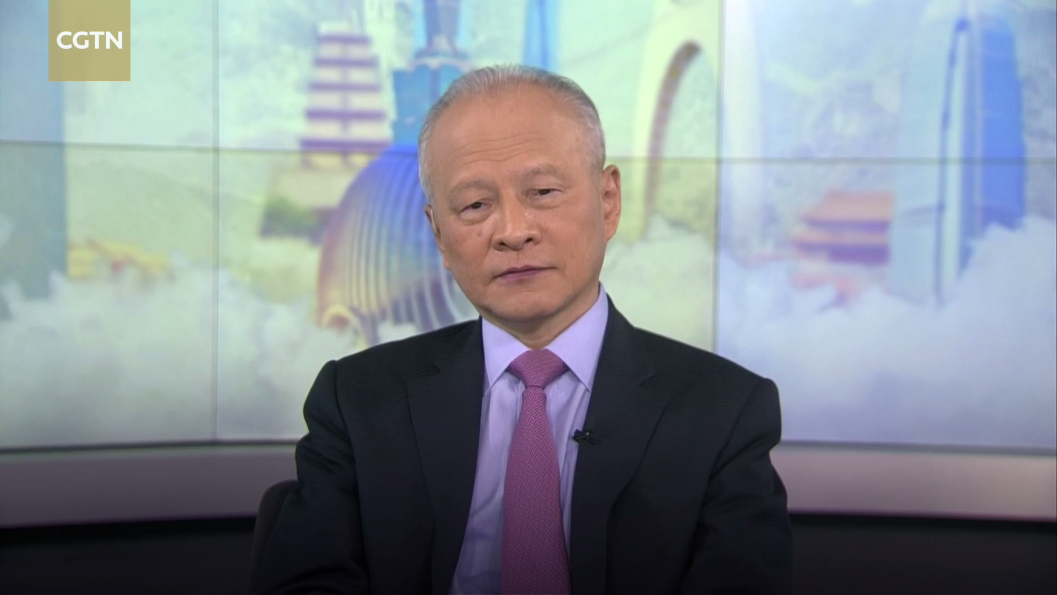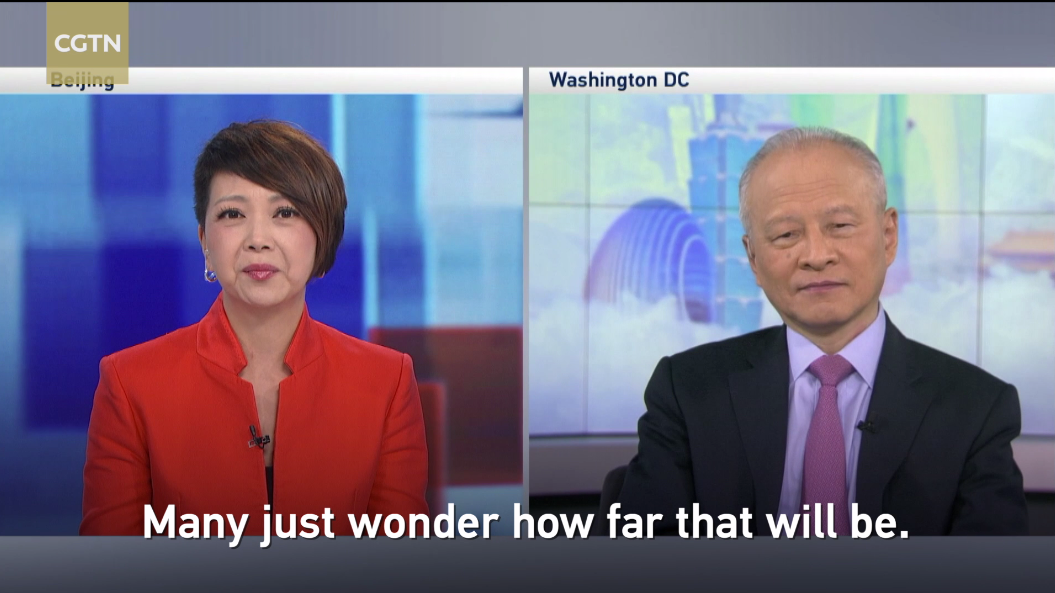02:50

Editor's Note: As 2019 draws to an end, turbulence in the China-U.S. relationship is stretching into the new year. Cui Tiankai, Chinese Ambassador to the United States, shares his thoughts during an exclusive interview with CGTN Anchor Tian Wei on the 40-year history and future of this unique relationship.
2019 has seen no shortage of pessimistic views on the China-U.S. relationship. However, for those standing on the diplomatic frontline, this particular relationship has never been a cakewalk.
"The China-U.S. relationship is never short of challenges and problems," said Ambassador Cui. Over the past 40 years, as Cui sees it, this relationship has developed because both countries kept forging ahead through the difficulties.
As Ambassador Cui points out, presidents of the two countries have set a goal to build a relationship based on "coordination, cooperation and stability". "By definition, a goal is something you have to work towards. It's not what you already have in hand," said the ambassador.
This could take a lot of work. The growing anti-China hardliners in Washington are causing tension between the two countries.
Despite the announcement of the Phase One deal, skepticism still remains about whether the trade war between China and the U.S. is on a path towards a resolution. As Tian Wei pointed out, China and the U.S. have described the trade war differently. The U.S. is eager to focus on the specifics as reasons for celebration, while China heralds the significance of the deal but remains vague on the details.
"Maybe people have different styles, but the fact is very clear that trade relations between the two countries should be for mutual benefit", Ambassador Cui explained. China and the U.S. have both benefited from the booming trade relations in the past decades. Cui says that two sides should work together to solve problems in the trade deal, and that China honors commitments that it makes. Any trade deal should take a step further in the providing mutual benefit for China and the United States.
01:45

There is also the Taiwan issue.
The upcoming election in Taiwan is set to be a thorny issue in January 2020. The U.S. has exploited the cross-Strait ties in the past for its own interests. Beijing has already accused Washington of interfering in Hong Kong, Tibet, and Xinjiang. The pending Taiwan election is likely to have a stormy plot if history is of any reference.
Ambassador Cui is adamant. The "local election in Taiwan is (a) local election in Taiwan Province of China," said the ambassador. He pointed out that China's bottom line is that there is only one China in the world, and both Taiwan and Chinese mainland are parts of China. This principle is about sovereignty and territorial integrity, and cannot be violated.
The ambassador also emphasized that U.S. has made a commitment to the one-China policy. China is a country that honors its commitments. He hoped the U.S. would do the same by carrying out the promises it made in the Three Joint Communiqués.
02:41

Many have focused on hardliners in Washington as being representative of the U.S.' attitude towards China. But, based on Ambassador Cui's experience in the U.S., Washington does not monopolize U.S.' stance towards China.
"When you talk about how American people think or feel about something, don't focus just on Washington," said the ambassador, "you have to look at the 50 states". By listening to people's concern, particularly those outside Washington D.C., Ambassador Cui found that there was widespread support among regular people for a better bilateral relationship between China and the U.S.
Those who are hyped up about the new Cold War and decoupling are deemed irresponsible by the ambassador. For him, such rhetoric is against the "tide of history". Four decades of history have proven that a "stable and mutually beneficial relationship" serves the interests of not only the two countries, but also the international community.
"Cooperation is the only choice that we should make", Ambassador Cui said.
Script writer: Huang Jiyuan
(If you want to contribute and have specific expertise, please contact us at opinions@cgtn.com.)